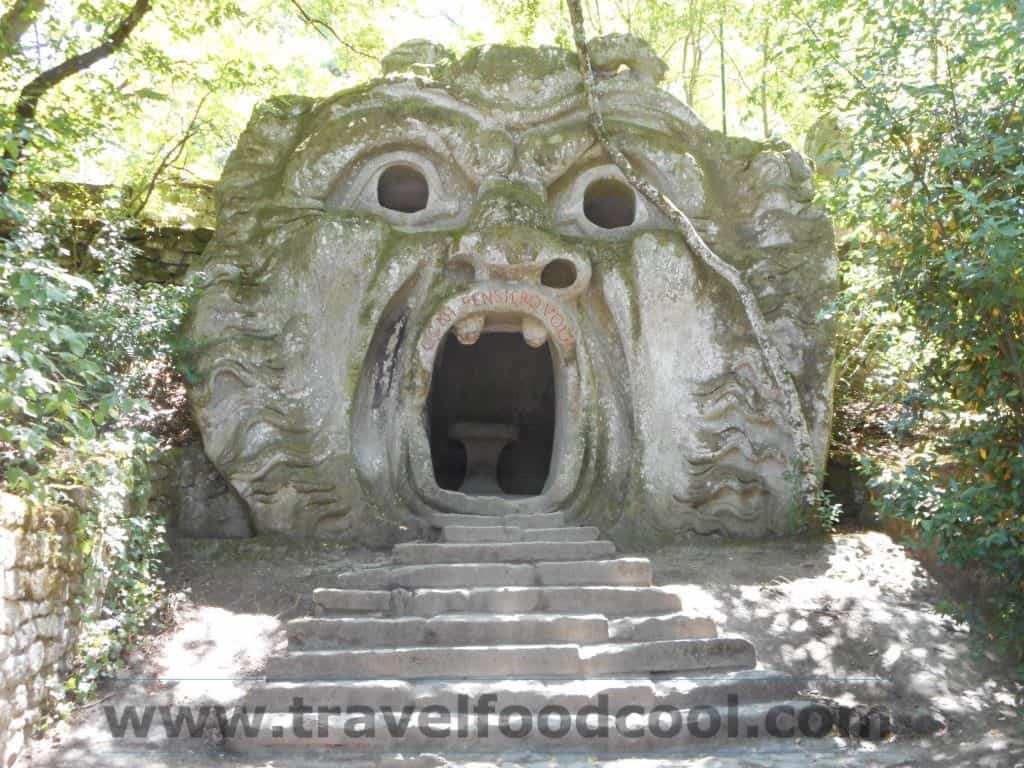
I have to admit to a little false advertising here. While the park in Bomarzo is often referred to as the Bomarzo Monster Park, as well as Parco dei Mostri (Park of Monsters) and the Bosco Sacro (Sacred Woods), there is nothing scary about it. In fact, it is absolutely lovely and a great “off the beaten path” spot to visit, approximately 1 hour north of Rome.
The park first came to life in 1552. It was the brainchild of Prince Pier Francesco (Vicino) Orsini. The “Villa of Wonders”, as the park was originally known, was designed by famed architect Pirro Ligorio. You might remember him from other hits such as St. Peter’s Basilica in Rome (he finished it after Michelangelo’s death) and Villa D’Este in Tivoli. The park itself is large and well-treed, which makes for a nice shady walk and a way to escape the beating sun during the heat of summer.
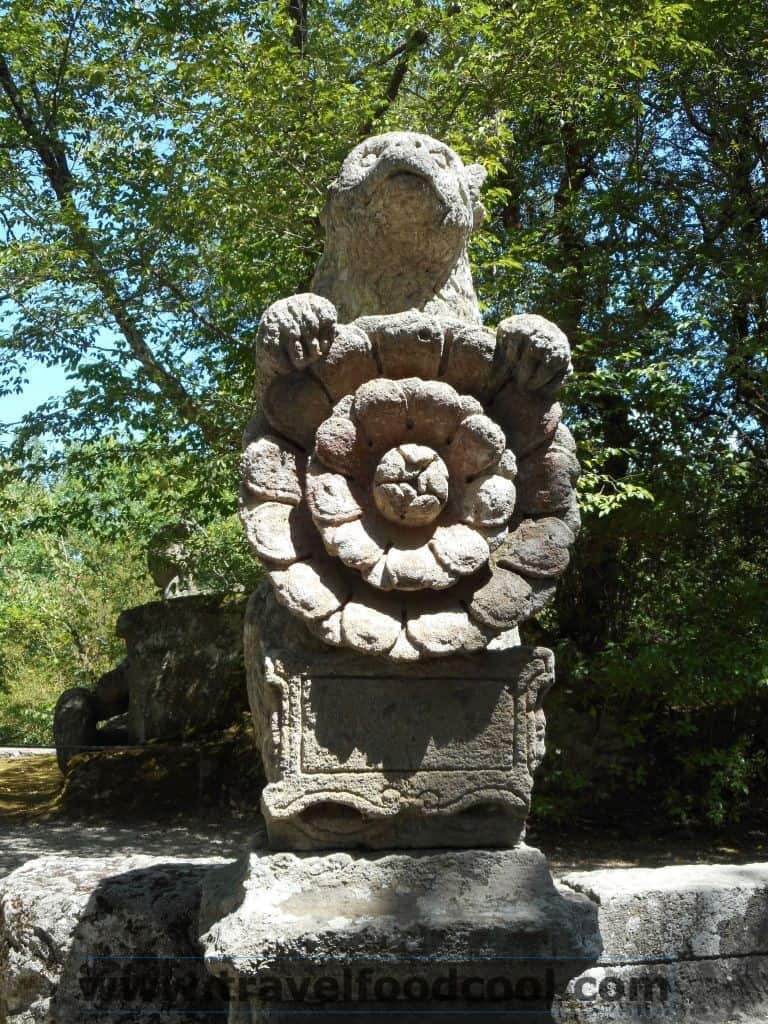
Unfortunately, there is a sad aspect of the story. Prince Orsini’s wife and great love, Giulia Farnese (not to be confused with the other, more famous, Giulia Farnese who was a “special friend” of Pope Alexander VI), died in 1560 and left him broken-hearted. He commissioned the statues (some say in his madness) and dedicated the park to her.
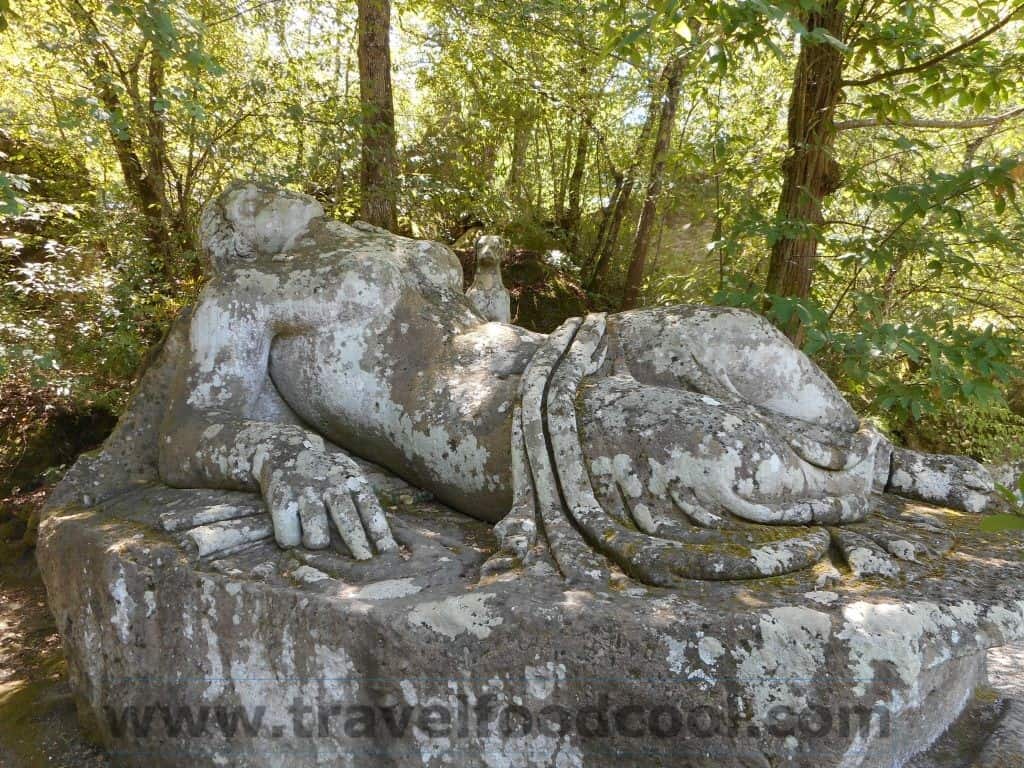
The statues were meant to amuse and astonish – mythical beasts, giants, sirens, elephants, dragons, and monsters were carved out of bedrock – this may have been the world’s first theme park! [A recent expert has come out and said that the park was designed by Michelangelo and that the statues were carved by his students.] Sadly, however, the statues were seen as grotesque and the park was not popular.
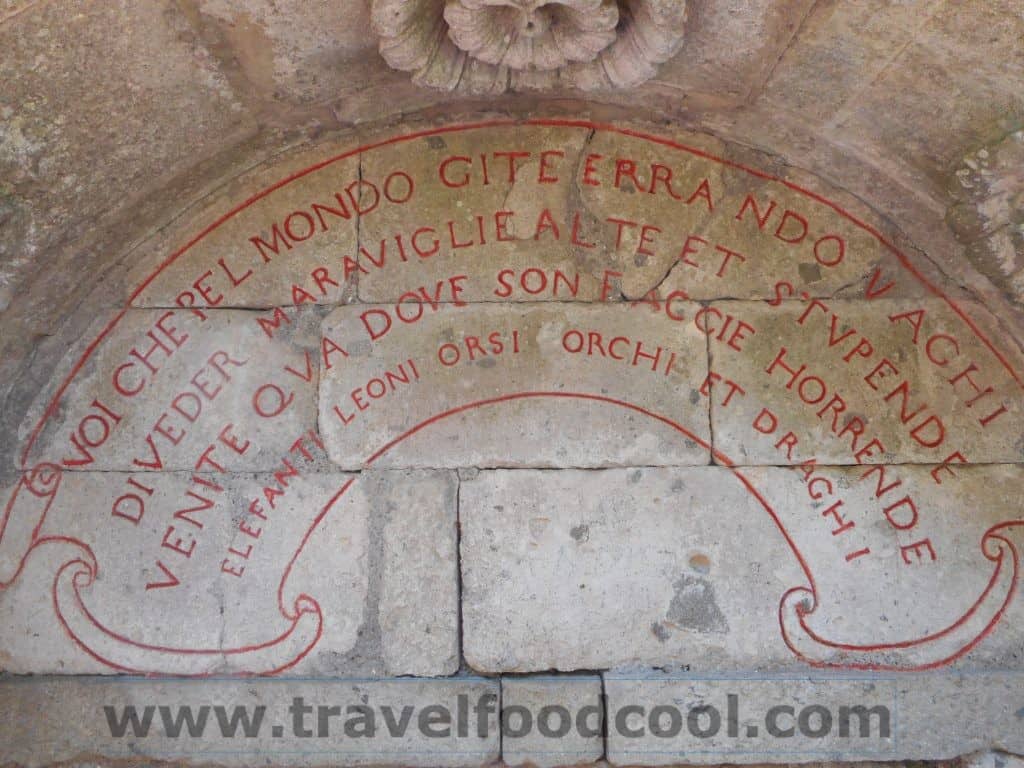
Tu ch’entri qua con mente parte a parte et dimmi poi se tante meraviglie sien fatte per inganno o pur per arte. – Vicino Orsini (“You who enter here put your mind to it part by part and tell me if the many marvels were made by deceit or for art”)
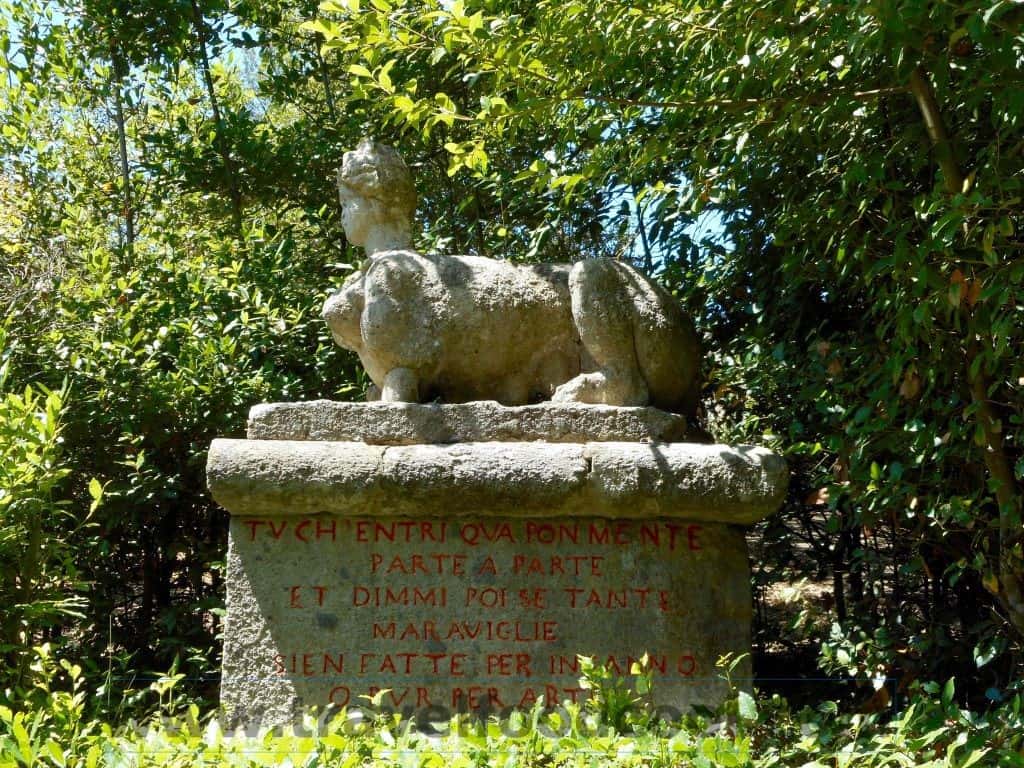
The park provides a walking route which takes about 2 hours. The park has 24 individual works of art. There is purposefully little description, as the idea is to let the viewer come up with their own thoughts or interpretations of the statues. One inscription suggests that the statues are placed, without much rhyme or reason, throughout the park: “sol per sfogare il cuore”, “solely to set the heart free”.
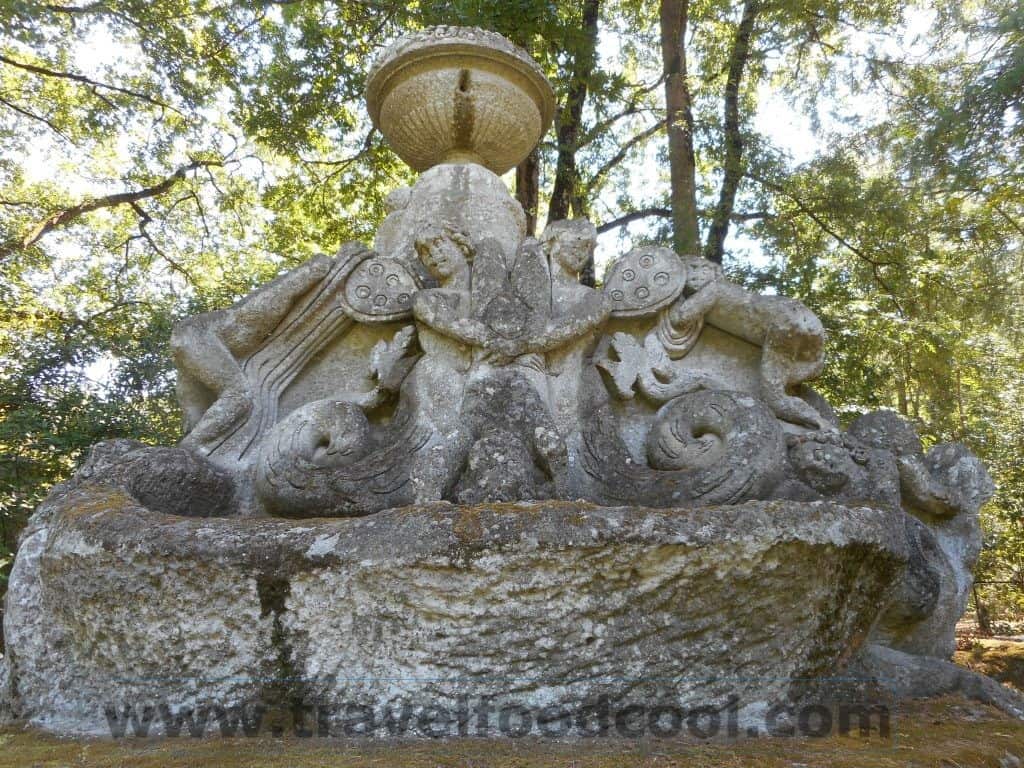
Walk down the path to the left of the entry and see the head of Proteus Glaucus, the fisherman who, after eating a magic herb, became a marine God.
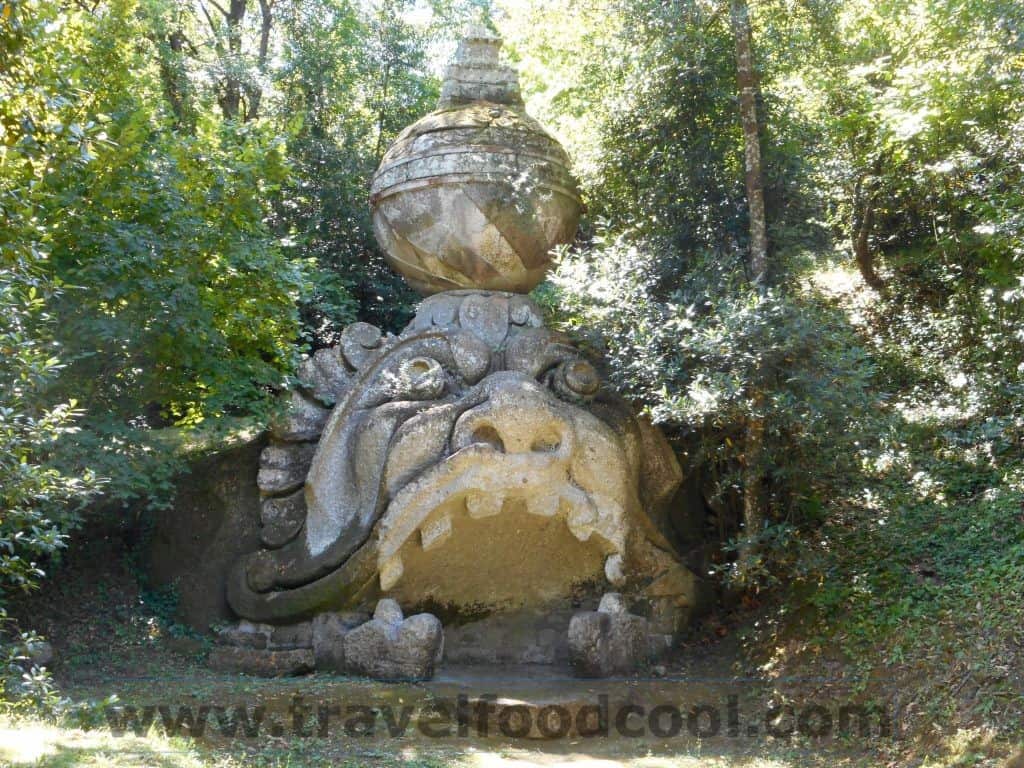
To the right and down the steps, you are faced with of the statue of Hercules battling Cacus.
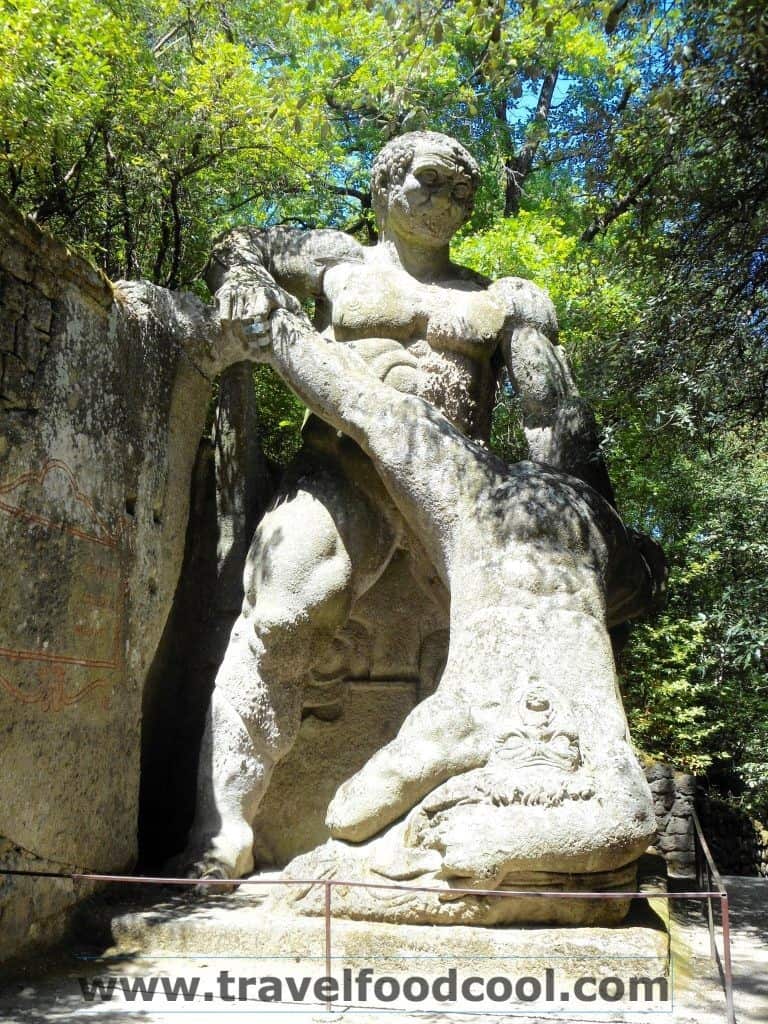
A giant turtle points the way to an Orca.
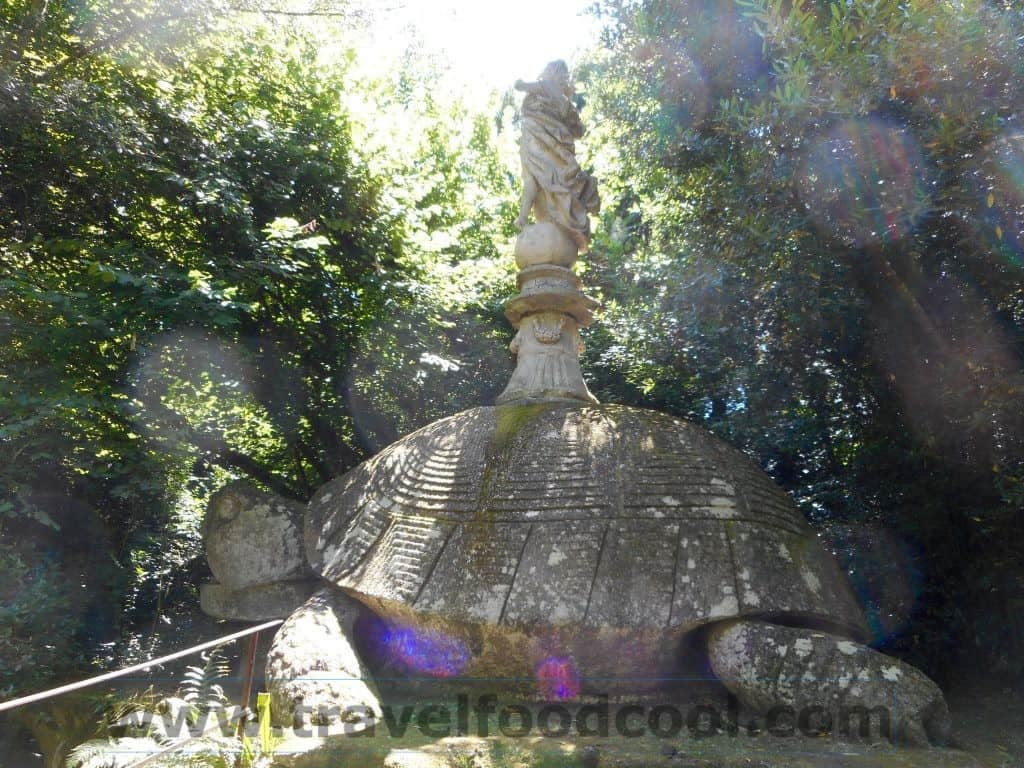
The Orca bursts from the water. I think it would have been really cool to have been able to first glimpse him from the original (now closed off) path which went underground and emerged through a tunnel.
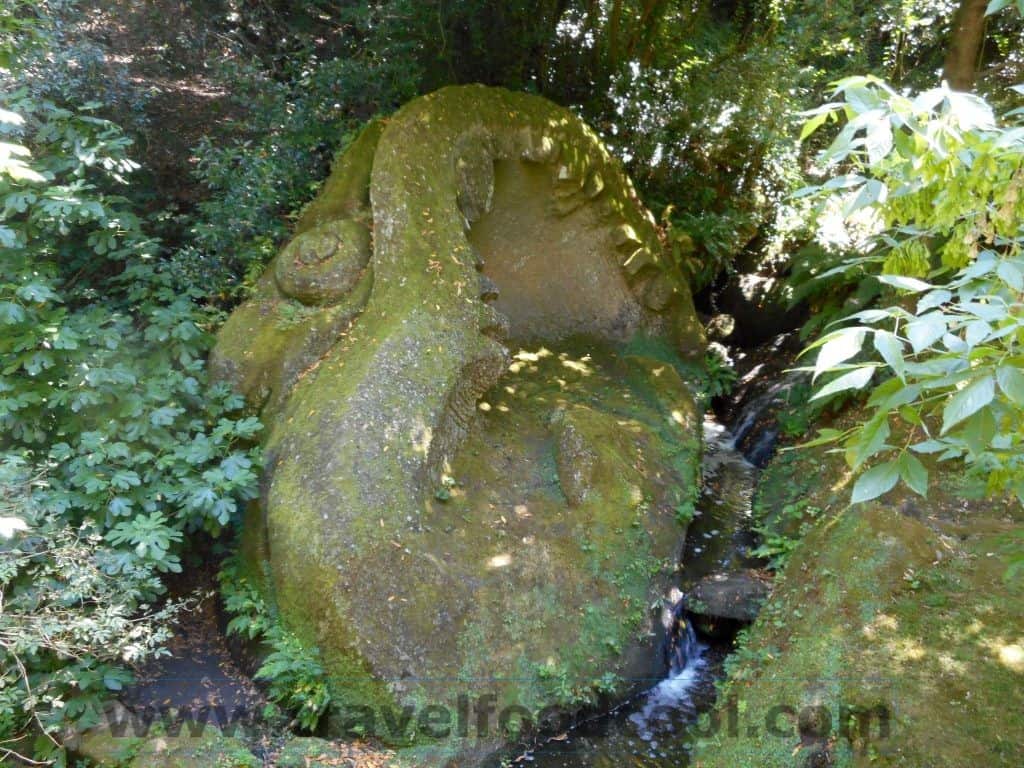
The Crooked House, with its slanted floors, was said to be created so others could understand how dizzy Vicino Orsini’s felt after the death of his wife. It has an Escher-esque feel to it.
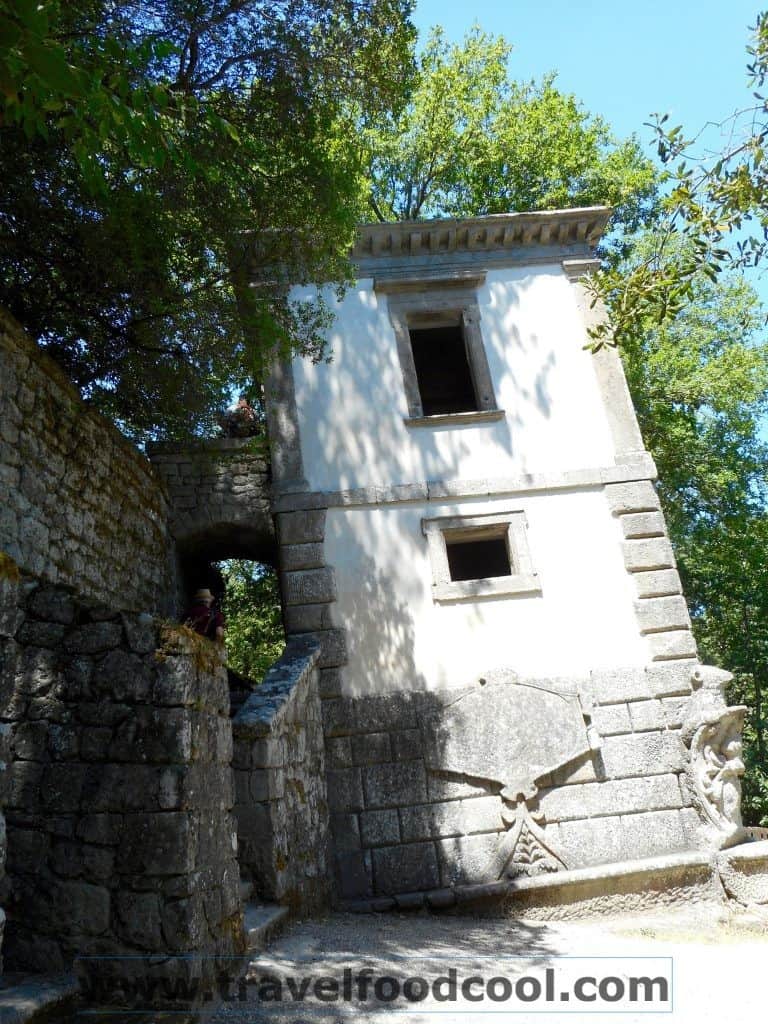
One of Hannibal’s elephants is seen trampling a soldier. Or is he? The statue from the other side, in my opinion, looks like the elephant is trying to save the soldier.
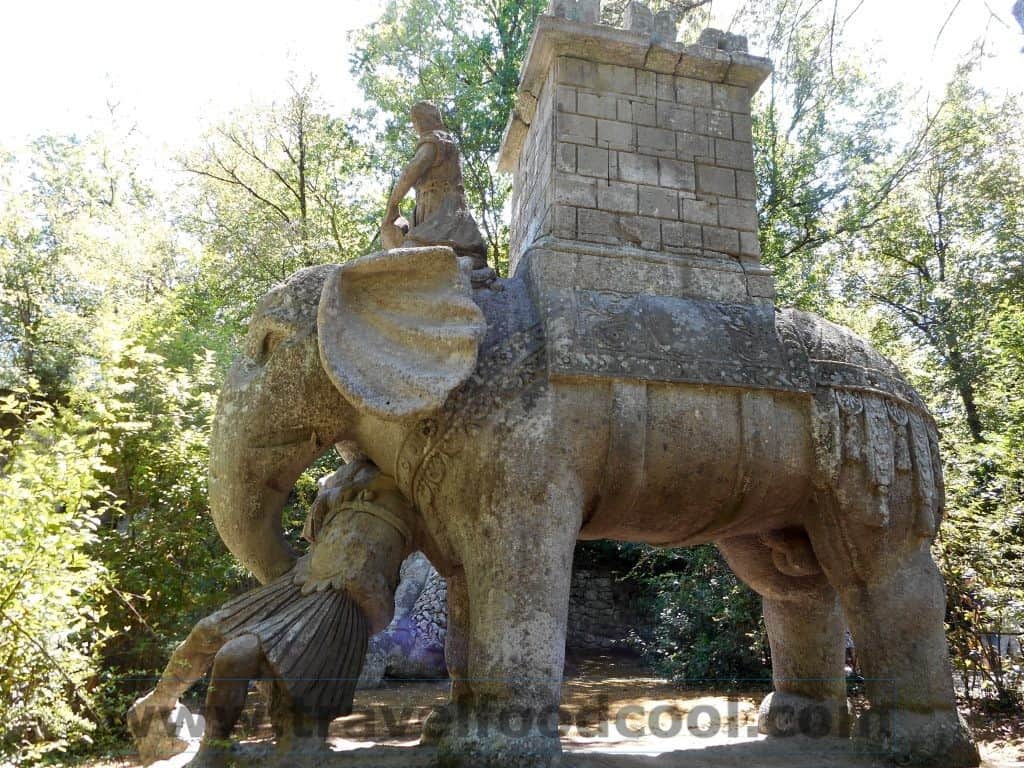
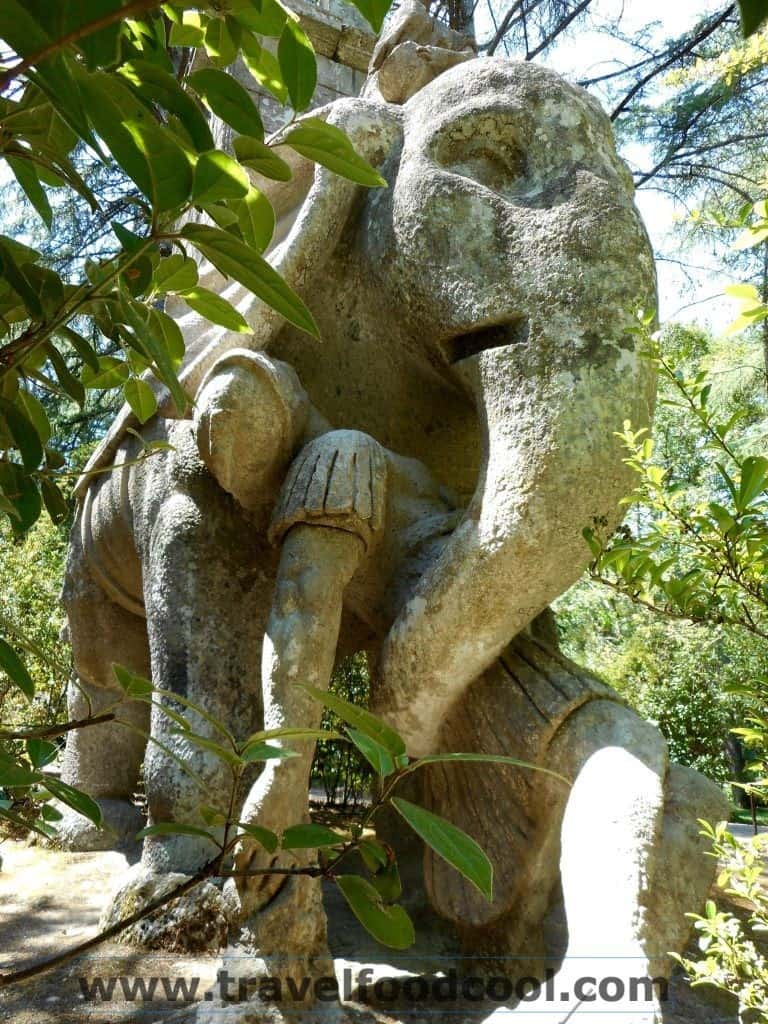
There is a dragon, not slaying a man, but battling a dog, a lion, and a wolf.
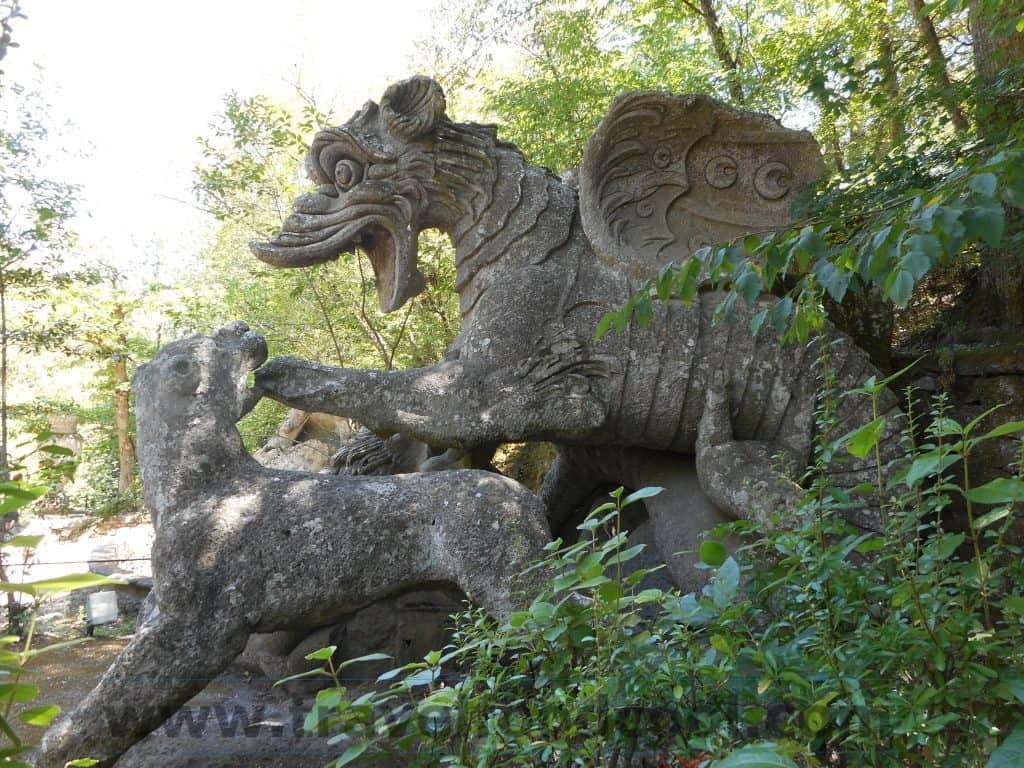
A siren, Faria, beckons, and across from her sits Echidna, half woman, half snake (okay, and part dragon).
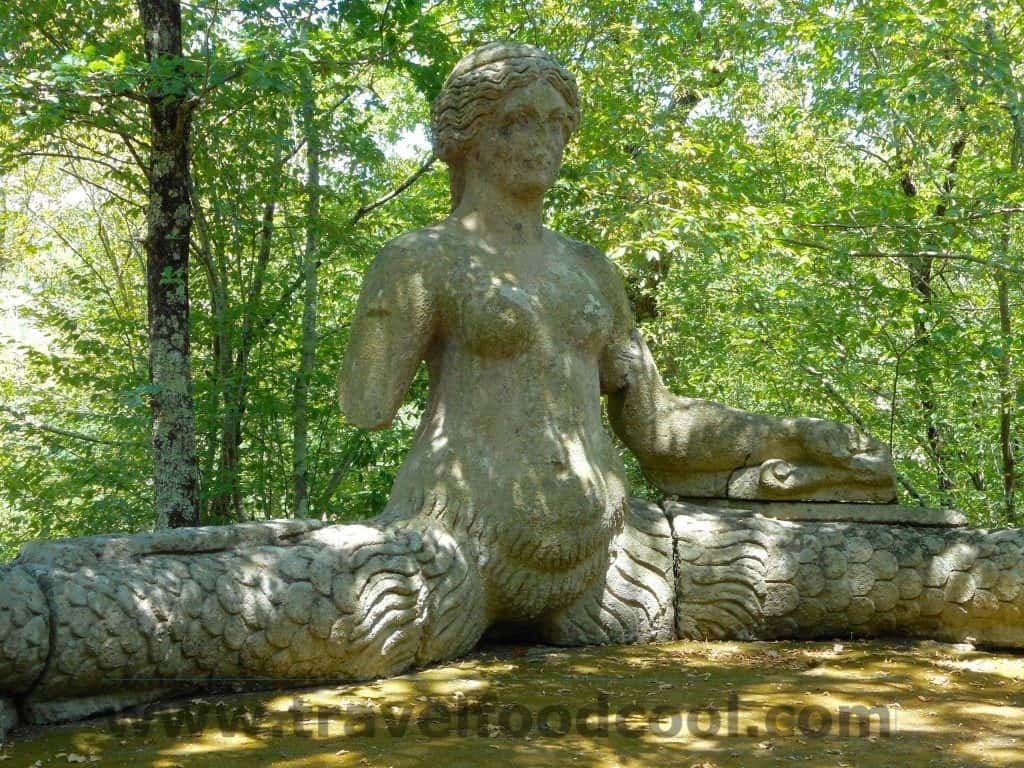
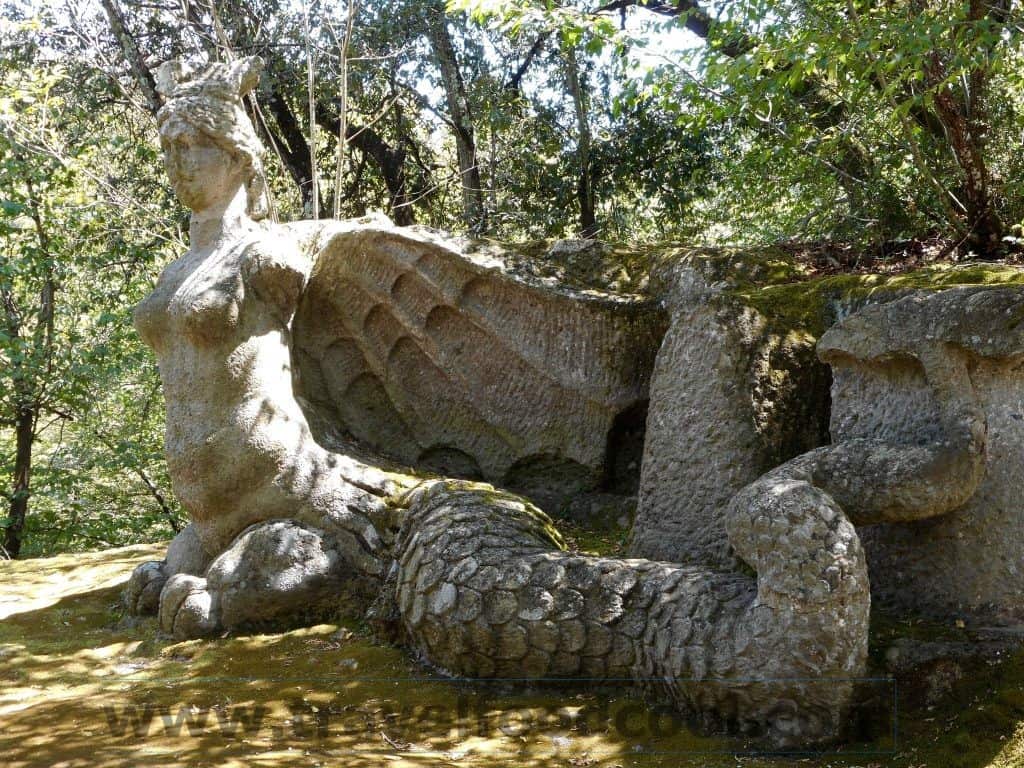
One of the most popular statues and photo shots is the Orcus (Orco or sometimes called the Ogre). The Orcus was one of the gods of hell, like Hades. The wide mouth of the Orcus is a medieval symbol of the gates of hell. [Am I a bad person to say that we lucked out and managed to get photos of a small girl running out of the Orcus’ mouth, screaming? It did make for a fantastic photo!]
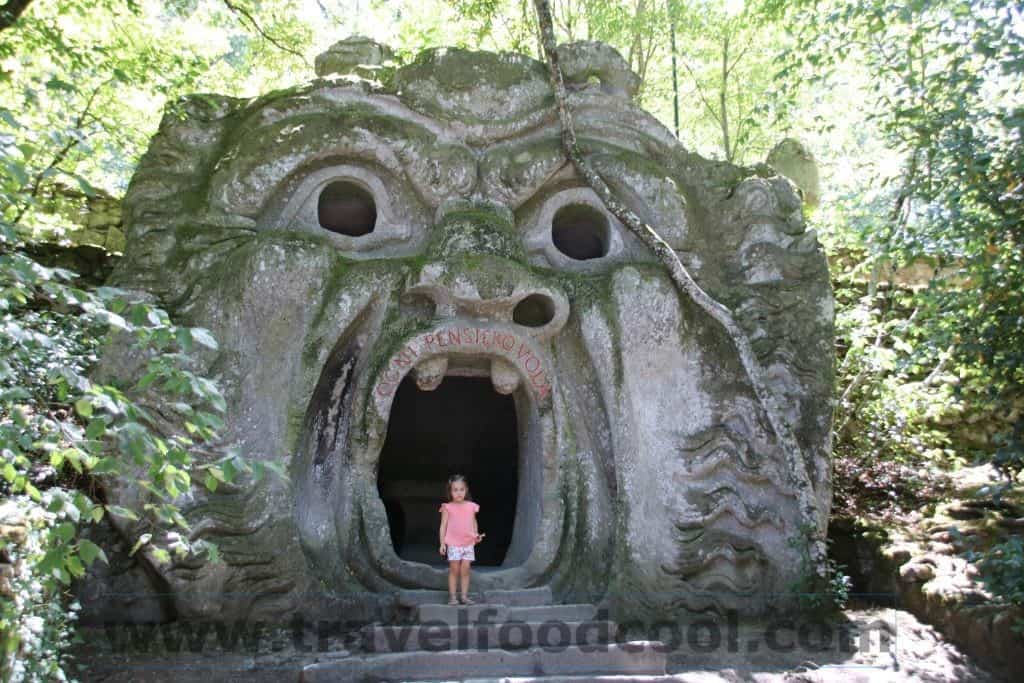
The sign over his mouth translates to “all thoughts fly” which is a warning. Do not tell secrets inside his mouth as you can hear every word perfectly outside!
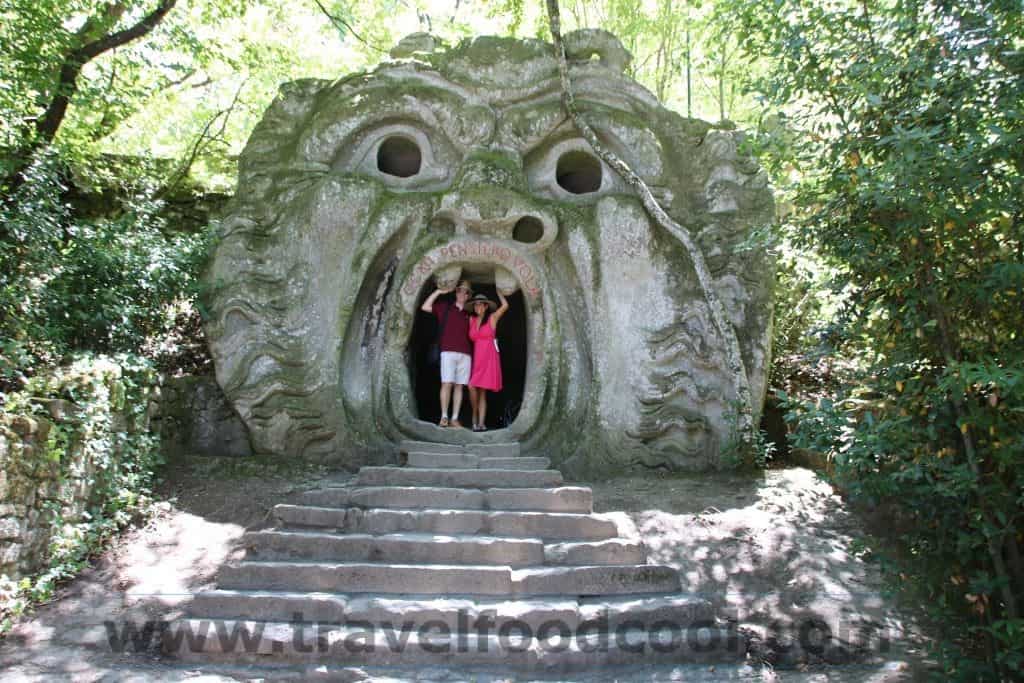
Vicino Orsini’s heirs had no interest in the park. His descendants did not add statues and neglected the property. The park fell into disarray and quasi-abandonment until it was rescued in 1954 by the Bettini family, who bought the property and restored it in the 1970s.
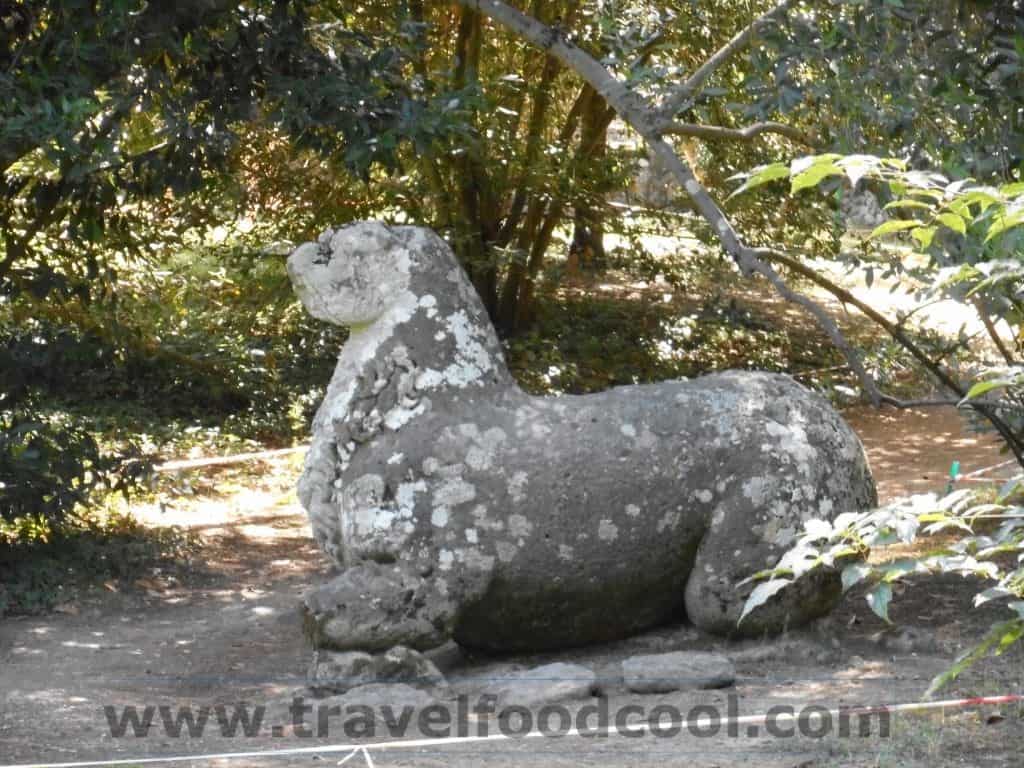
The Bettini family also used the “Temple of Eternity”, which Orsini built as a memorial for Giulia (or for his second wife, Cleria Clementino), as their crypt. This is where the bodies of some Bettini family members now reside.
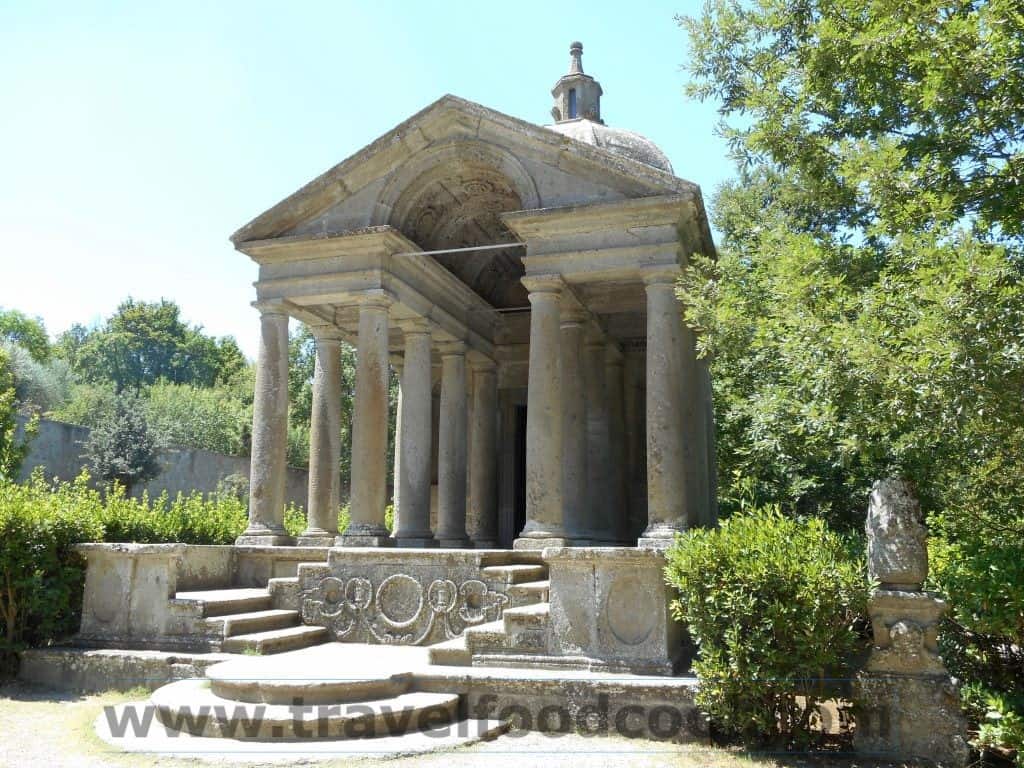
The strange nature of the park found a fan in French playwright and author, Jean Cocteau. Another visitor with Cocteau to Bomarzo was Salvadore Dali. Dali shot a film as well as creating a painting based on Bomarzo Monster Park in the 1950s.
The park is family friendly. There is a great spot with tables and barbecues (stacked with wood) for picnicking if you pack a lunch, complete with a play area for kids. There is a place inside the entrance which sells sandwiches, but we had no luck finding any restaurants in the town of Bomarzo.
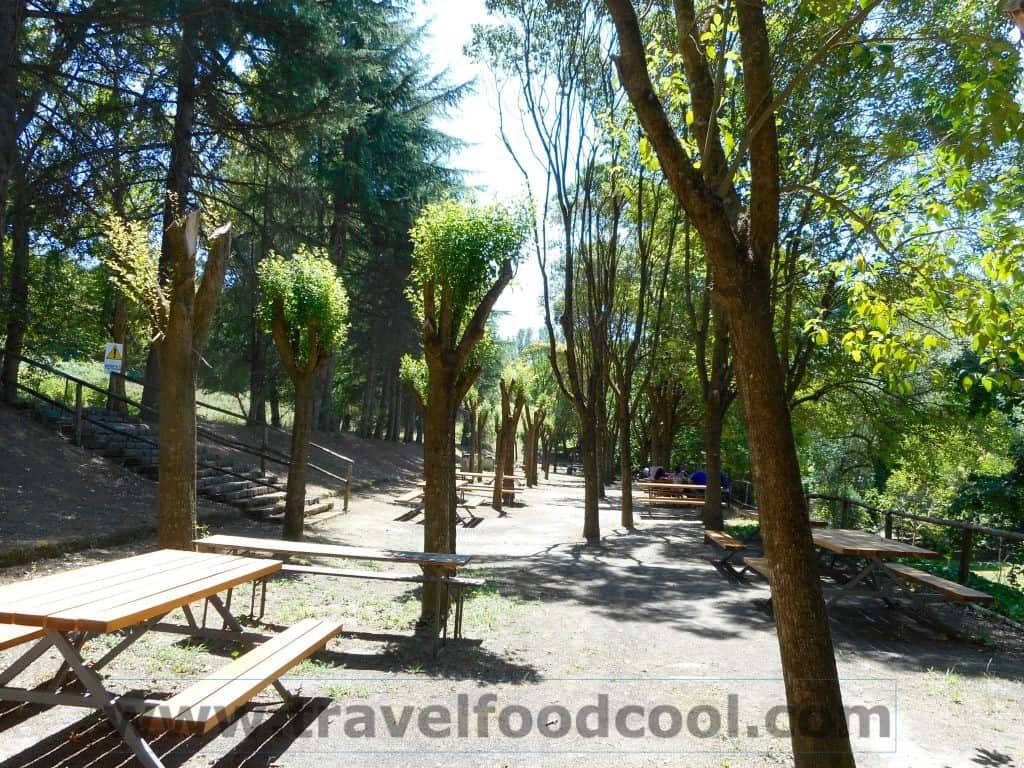
ELIN’S TIP: do a double header and visit “The Dying City” in the morning (stay there for lunch) and go to Bomarzo Monster Park in the afternoon.
Where: Bomarzo, Viterbo, Italy; When: Open all year round, 8am to sunset; Cost: €10 adults, €8 children





















